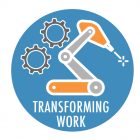
In our last post we looked at the skills business-led KC Rising describes as essential to career success: communication, collaboration, critical thinking, interpersonal skills, proactivity and executive function. In this post we want to look at where metro Kansas City young professionals develop essential skills.
KC Rising conducted focus groups with young professionals in part to learn about where they most learned these skills. They summarize their findings separately for high school and college. They divided the settings into extracurricular activities, leadership in extracurricular, outside job/internship, standard coursework, advanced classes, and elective coursework.
- In high school young professionals chose extracurricular activities as the place they most developed communication skills. In college they chose outside job/internship.
- In high school young professionals chose extracurricular activities as the place they most developed collaboration skills. In college they chose standard coursework.
- In high school young professionals chose advanced classes as the place they most developed critical thinking skills. In college they chose standard coursework.
- In both high school and college young professionals chose extracurricular activity as the place they most developed interpersonal skills.
- In high school young professionals chose advanced classes as the place they most developed proactivity skills. In college they chose standard coursework.
- In high school young professionals chose extracurricular activities as the place they most developed executive function skills. In college they chose outside job/internship.
KC Rising summarizes the results of where young professionals develop essential skills this way:
People learn Essential Skills best by practicing them, watching and learning from others, and engaging in ongoing reflective practice. … “Real-world” learning experiences provide opportunities to build all Essential Skills. In focus groups, young professionals noted that projects that connected them to real-world problems forced them to work together to find a solution, communicate clearly, make a plan, and demonstrate curiosity and creativity. They spoke about learning to try and fail through these experiences. The experiences varied – internships, volunteering, sports, theater, employment – but they all shared a real-world connection and were a source of Essential Skills growth.
The authors of In Search of Deeper Learning came to a similar conclusion after visiting high schools identified as some of the best in the country. The authors, Jal Mehta and Sarah Fine, report that often, the places they saw the greatest evidence of deeper learning occurring was not in English or math, but in extracurriculars and classes that are often considered “specials:” journalism, art, theater, etc. Mehta and Fine write:
…Such contexts often harness the power of an apprenticeship model in which real-world domains of professional practice provide standards for good work, teachers model expertise and conviction, and students gradually are inducted into more and more complex aspects of the professional activity. This constellation of qualities infuses the learning with depth, meaning, and a palpable sense of momentum—the very qualities that are often lacking in mainstream academic classes
That is not to say that course work in both high school and college are unnecessary. The metro KC young professionals clearly identified classwork as an important place where they developed some essential skills both in high school and in college.
But what these findings do make the case for is a much broader definition of a quality education. That it is about more than just course work. And that it is about more than just mastering content to do well on standardized tests. That if we care about all students having the opportunity to develop essential skills that requires all students, both in high school and in college, to have access to and be able to pay for high-quality extracurriculars, electives, outside jobs and internships.
These findings also make the case that project-based learning should be part of, if not the core, of what we think of as traditional course work. This is the central message of those we interviewed, including Sarah Fine, in our What Now? series on the future of schooling.
As a reminder here is what KC Rising means for each of their essential skills:
- Communication – The ability to adapt within various channels, to connect effectively with clients, co-workers, supervisors, and other collaborators.
- Collaboration – Cohesive teamwork that recognizes and leverages the skills and knowledge of colleagues across a range of disciplines.
- Critical Thinking – Problem-solving that synthesizes information, anticipates new challenges and opportunities, and builds strategies toward workplace effectiveness.
- Interpersonal Skills – Treating others with empathy and respect, building trusting relationships, and creating a sense of belonging and shared purpose.
- Proactivity – Taking the initiative to seek out and act on opportunities to learn, innovate, and add value to an organization.
- Executive Function – The self-accountability needed to work independently, manage tasks and resources to meet deadlines, and deal with ambiguity.







